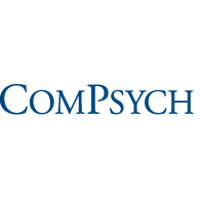
When you’re finally ready to get help, it can feel like you’ve stepped into an alphabet soup: “Do I need a psychologist? A therapist? A counselor? Does it even matter?” The short answer: yes and no. Yes, there are real differences between a psychologist and a therapist. But no, you don’t have to figure this out alone—especially if you’re coming to a place like Crosspointe Recovery, where we build a team around you instead of asking you to pick the “right” title upfront.
So…what is a psychologist?
Universities and health systems describe psychologists as mental health professionals who complete a doctoral degree in psychology (usually a PhD or PsyD), plus years of supervised clinical work and state licensure. Bouvé College of Health Sciences
In plain language, a psychologist is trained to:
- Understand how thoughts, emotions, and behavior work
- Assess and diagnose mental health conditions
- Use structured, evidence-based therapy to help people change
Some psychologists do a lot of testing and assessment (for example, teasing apart PTSD vs. depression vs. bipolar symptoms). Others spend most of their time doing therapy, especially in settings like rehab or hospital programs. Psychology.org
They typically don’t prescribe medication—that’s the psychiatrist’s lane—but they often work closely with medical providers.
And what’s a therapist, then?
“Therapist” is more of an umbrella word than a single license. A therapist might be:
- A Licensed Marriage and Family Therapist (LMFT)
- A Licensed Clinical Social Worker (LCSW)
- A Licensed Professional Counselor/Clinical Counselor (LPC/LPCC)
Most therapists complete a master’s degree in counseling, social work, or a related field, then log thousands of supervised hours before getting licensed.
In everyday life, a therapist is the person you:
- Talk to every week
- Practice coping skills with
- Work through trauma, anxiety, depression, substance use, relationships, and boundaries with
The American Psychological Association notes that in mental health settings, “therapist” is often used synonymously with “psychotherapist”—someone trained to provide therapy for mental or emotional problems. UAGC
So while the training paths differ, from your side of the couch, sessions with a psychologist vs. a therapist can feel very similar: you’re talking, they’re guiding, and together you’re working on real change.
The overlap that actually matters
Here’s the part most people care about:
Both psychologists and therapists can
- listen without judgment,
- help you understand what’s going on, and
- use proven approaches (like CBT, trauma-informed care, relapse-prevention work) to help you feel and live better.
For you, the bigger questions are usually:
- “Do I feel safe with this person?”
- “Do they get what I’m going through?”
- “Is treatment actually helping?”
That’s where how a program is built matters just as much as the letters after someone’s name—and it’s exactly where Crosspointe Recovery comes in.

How Crosspointe Recovery Uses Both to Support You
Crosspointe Recovery in Sherman Oaks is a dual-diagnosis treatment center specializing in addiction and mental health. You’re not just dropped in with a random provider; you’re wrapped in a team that can include therapists, psychologists, and medical professionals, depending on what you need.
You don’t have to decide, “I want a psychologist, not a therapist.”
You tell us what’s going on—we help decide who and what mix of care will actually help.
1. We look at the whole picture, not just one label
From your first contact, our focus is on you, not on what box you fit into.
During assessment for our mental health & addiction treatment programs, we look at:
- Substance use history
- Anxiety, depression, trauma, or mood symptoms
- Relationship stress, grief, work and family pressure
- Past experiences with therapy or treatment
If your situation is complex or unclear, a psychologist may help clarify the diagnosis and shape the treatment plan. If what you need most is regular, steady support and skill-building, a therapist may be your primary go-to. Often, you’ll have both voices involved at different points.
2. Different levels of care, same coordinated team
Life doesn’t pause just because you’re struggling. That’s why Crosspointe offers a continuum of care—so you can get the right intensity at the right time.
- In detox and residential care, the focus is on safety, stabilization, and getting you out of crisis. Psychologists and therapists may both be involved in assessing what’s underneath the substance use and beginning to map out next steps.
- In our Intensive Outpatient Program (IOP), you come in for therapy several days a week, without an overnight stay—ideal if you’re ready for deeper work but still need to keep up with school, work, or family. Licensed therapists typically lead groups and individual sessions, and may consult with psychologists or psychiatrists when there are more complex mental health questions.
- In outpatient treatment programs, you step down into fewer hours while still keeping a therapeutic relationship in place. This is often where long-term work on patterns, boundaries, and relapse-prevention really settles in.
Across all of these, the idea is the same: you get the right combination of expertise, not just one credential in a vacuum.
3. Therapy that feels human, not clinical
Plenty of people are scared of therapy, especially if they’ve had cold or cookie-cutter experiences in the past. Crosspointe even wrote about this in
“Why Are We Afraid of Therapy? Unveiling the Healing Potential”,
because we see it so often: smart, capable people delaying help because they’re worried they’ll be judged, labeled, or talked down to.
Whether you’re sitting with a psychologist or a therapist here, the goal is the same:
- Make it feel safe enough to be honest.
- Use science-backed approaches without losing the human connection.
- Help you understand what’s happening in your brain and body, instead of just telling you what’s “wrong” with you.
That might mean structured CBT, trauma-informed work, or something more experiential, like art therapy in addiction recovery, where you can express things that are hard to put into words.
4. You don’t have to “pick the right title” to get started
This is the piece most people find relieving: You don’t need to show up knowing whether you “should” see a psychologist or a therapist.
At Crosspointe, your job is to say, “This is what I’m struggling with.” Our job is to say, “Here’s how we can help—and here’s who will be on your team.”
We adjust as we go. If your therapist feels you’d benefit from a psychological consult, or your symptoms shift, the plan can evolve. You’re not locked into one lane forever.
When should you reach out?
It might be time to talk to someone if:
- You’re using alcohol or drugs to cope with stress, anxiety, or trauma
- You’ve tried to “white-knuckle” it on your own, and it’s just not working
- You’re feeling stuck, numb, or overwhelmed—and you’re tired of doing it alone
You don’t have to have the right words or diagnosis. You just have to be willing to start a conversation.
Ready to see what the right team could look like for you?
If you’re in the Los Angeles area—or looking for treatment in California—Crosspointe Recovery can help you sort out not just what’s going on, but who and what you actually need.
You can:
- Learn how our mental health & addiction treatment programs are structured across detox, residential, PHP, IOP, and outpatient.
- Explore our Intensive Outpatient Program if you need more than once-a-week therapy but can’t step away from life completely.
- See how Outpatient Treatment Programs support long-term recovery, growth, and ongoing mental health.
When you’re ready, reach out for a confidential conversation. You don’t have to know if you need a psychologist or a therapist. You just have to know you’re ready for things to get better—and we’ll help with the rest.
















